|
Known within the Faculty as an all-rounder due to her unconventional yet impressive forays in various areas such as moots, case competitions, and youth leadership, Qi Hui’s journey to self-discovery is less travelled for a reason. Her journey is one of perseverance and resilience — made possible by kind souls along the way — has taught her to remain genuine and humble. Tempted by the bright lights and prestige of law, Qi Hui chose to pick law over other fields. Yet, her early days in law school were blighted with insecurities. She recalls the heartbreak after missing the Dean’s List in her first semester, in spite of her meticulous preparations. Only then did she decide to venture beyond the comforts of libraries and lecture halls, placing her values beyond the assigned grades. One door has led to another, and today, these quests exude radiance to Qi Hui’s retelling of her law school journey. Your performance in moot is remarkable, having participated in the bigger moots internationally all the way to the ‘Olympic of all Moots’ — the Philip C. Jessup International Law Moot Court Competition (‘Jessup’) — in 2021. Please enlighten us on your journey. ‘When I first joined moots, naturally, I was the “kid” in the team. Yes, there was a lot to learn, but the people were kind and helpful, which enabled me to cope with the expectations.’ Getting a head start in her first year, Qi Hui was one of the few ‘freshies’ bold enough to join an international moot on her first attempt. Motivated by prospects of flying to Rotterdam, Netherlands, Qi Hui kickstarted her mooting journey with the International Maritime Law Arbitration Moot (‘IMLAM’) 2019. The learning curve was steep. She started off not knowing that citations are necessary for written memorials — leading her to be poked fun at affectionately by her senior teammates. Being the ‘kid’ of the group has its virtues, as she expressed her gratitude for the guidance shown towards her. The hard work paid off as her team triumphantly ranked seventh in the preliminary rounds and finished as octo-finalists out of 40 teams worldwide! IMLAM presented Qi Hui with the opportunity to explore unfamiliar terrains, both in the trove of knowledge and the streets of Rotterdam Since then, Qi Hui has gone from strength to strength in moots. For Qi Hui, every moot is unique in its own way. For instance, the Price Media Law Moot Court Competition (‘Price Media’) places a heavy emphasis on policy arguments, while the Foreign Direct Investment International Arbitration Moot (‘FDI’) revolves around investment law. When asked on the secret to excelling at moots — having been an international semi-finalist in Price Media and placed as the highest ranked team in FDI, Qi Hui underscores the importance of understanding the subject matter and the logical consequences for each argument. In addition to international moots, Qi Hui has also participated in the KL Bar-Lincoln's Inn Alumni Moot Court Competition 2019 and the AIAC-ICC Pre-Moot for the Willem C. Vis International Commercial Arbitration Moot 2019 to strengthen her advocacy skills. Besides being able to moot alongside friends and indulge in the merriment, these moots also taught her how to be resourceful and less reliant on coaches. ‘I think all these small moots do build you up.’ This culminated in her winning the Asia Pacific Championship for the Philip C. Jessup International Law Moot Court Competition (‘Jessup’) 2021, also known as the ‘Olympic of all Moots’. Reflecting upon her journey, Qi Hui credits moot for improving her grades and highly encourages all law students to give it a shot. In her opinion, mooting brings law to life as it forces students to take a position and explore issues from different angles. Jessup 2021 was a tough yet rewarding milestone in Qi Hui’s mooting career, thanks to Ms Noor Ameerah Nasri, Ms Saradha Lakshmi, Mr Chew Then Ern, and Mr Nevyn Vinosh When asked on advice for budding mooters, Qi Hui says it is simply to focus on yourself. This is easier said than done, she quipped. Representing the University in a high-stakes competition comes with massive pressure to excel. Each submission is meticulously evaluated, whilst being bombarded with different advice. In coping with the intense pressure, Qi Hui feels it is critical to remind oneself that the main objective is to learn, and not just compete. Moreover, pressure and stress from competitions is a privilege that not many get to experience. Her two key takeaways are as follows. First, the team should always take precedence. Where conflicts arise, talk it out with the team and never forget the bigger picture. Second, focus on your own performance. Rather than agonising over how one’s teammates will perform, or which speaking style is better — it is the team’s eventual victory that matters. In her eyes, a team is strongest when all members play to their strength. Do share with us your experience as a law student navigating the foreign terrains of business case study competitions. Beyond the law curriculum, Qi Hui also tried her hand in non-law-related involvements. Ultimately, she discovered that a collection of diversified experiences is important to widen one’s options after graduation. One way to look at it is that these different involvements encourage us to pick up unique yet complementary skill set, which will come in handy somewhere down the line. Seeking to branch out into different industries, she eventually stumbled across the intriguing world of case competitions. ‘Sometimes we get caught up in a storm of perfection, always afraid of bad decisions. In fact, the only way good decisions come about is going through it.’ Qi Hui’s first taste of case competitions came in the KPMG Innovation & Collaboration Challenge (‘KICC’) 2019, where her team was tasked with an innovation challenge to tackle food waste. Brimming with enthusiasm, any initial reservations were quelled by the creativity and flexibility demanded in the competition. After many late nights and a nerve-wracking final, her efforts paid off when her team emerged as national champions. KICC marks Qi Hui’s first expedition into case competitions Since then, she has challenged herself in various fields of business such as trust and tax, emerging as the first runner-up in the PricewaterhouseCoopers (‘PwC’) Trust Builders Challenge 2021, and ranking in the top 10 nationally in the EY Young Tax Professional of the Year 2019. After sharpening her skills and acumen in numerous national level competitions, this culminated in an eventful final year of law school where she captured two international titles: triumphing as the Asia Pacific Champion in both the Procter & Gamble (‘P&G’) CEO Challenge 2022 and the HSBC/HKU Asia Pacific Business Case Competition 2022 – the latter being the largest business case competition in the region! When asked which competition was the most daunting, she found HSBC’s competition thrilling as the team only had six hours to develop strategic recommendations and hand draw pitch decks. Qi Hui and her dream team — Mr Matthew Ooi, Ms Alma Artin Vaqari, and Mr Davin Singh — put Malaysia on the global map during the HSBC/HKU Asia Pacific Business Case Competition 2022 For anyone searching for a niche, Qi Hui suggests giving case competitions a shot. Not only are the rewards for personal and professional development immeasurable, but one also gets to explore different industries from a strategic perspective. Admittedly, there were innumerable setbacks and failures along the way, but staying true to the motivation behind joining — learning new skills and enjoying the process kept her going. Along the way, Qi Hui discovered that business and strategy can be a force for good. When joining the Malaysia Public Policy Competition (‘MPPC’) 2020, her team emerged as first runner-up by proposing to tackle the digital divide among youths through innovative fiscal policies and targeted public-private partnerships. Moreover, she started her own social enterprise through McKinsey & Company’s Youth Leadership Academy 2020 to empower underprivileged homes to earn a sustainable income through food. She remembers vividly being informed by the caretakers that the children were treated nicely to a trip to the supermarkets and movies occasionally, leaving her to ponder what ‘a nice treat’ truly meant. Being able to help feed the children touched her heart as she saw first-hand the impact one can create. Furthermore, Qi Hui dabbled in debate. To her, debating was formative as it moulded her to be more assertive and quicker on her feet. While possessing limited debating experience, Qi Hui and her debate teammates, Nevyn and Sharwin, managed to break into open category in the Australasian Intervarsity Debating Championship (‘AUSTRALS’) 2020, a first for Universiti Malaya. Tracing back her journey, debate taught her more than just advocacy skills, but reminded her to stay curious about the happenings around the world. We cannot hide our interest in your youth advocacy involvements. Did your participation stem from a personal interest in the topic, or did you acquire an interest during the process? What attracted Qi Hui to these programs were the prospects of travelling and meeting new people. Starting from University Leadership Development Program (‘ULDP’), Qi Hui was able to meet friends across different fields and was put under stimulus to brush up her leadership skills. These programs complemented her law school journey, filling in the gaps of events which were not taught in school. Further, acting as a delegate at the 6th ASEAN Foundation Model ASEAN Meeting (‘AFMAM’) and the Thailand Institute of Justice Youth Forum on Justice and the Rule of Law allowed her to interact with fellow youths across ASEAN. Meeting people from all walks of life has shifted her perspective on life. Beyond experiencing different cultures, she finds it refreshing to meet people with diverse pursuits in life. It inspired her to take a step back and evaluate her standing. It then dawned upon her that there is no single definition of success, and one does not have to conform to societal norms. It is great to have you back as it has been two years since you lead the University of Malaya Law Review (‘UMLR’) as a Managing Editor for 2019/2020. Do share with us your experiences in leadership. ‘It is not so much about your leadership style, but rather, what works well for the people you are working with.’ Intriguingly, Qi Hui self-identifies as a follower; though she has held several leadership experiences in her roles as the Managing Editor in UMLR and Project Director in the International Council of Malaysian Scholars and Associates (‘ICMS’) for MPPC 2021. To her, being a leader used to be about leading by example. During her time as the Managing Editor of UMLR, she placed emphasis on being efficient and churning out publications on time. However, things took a turn when she was appointed the lead consultant for the Malaysian SOCIAL Project, a pro-bono consultancy group. Being her first venture into consulting, Qi Hui wrestled with subject matter unfamiliarity and the occasional insecurity of leading a team more experienced than herself. Yet, she learnt a leader brings a team together by leveraging on others’ strengths and routinely seeking help from mentors. Consequently, she was able to drive a diverse team and developed a monthly-giving programme and a regional expansion strategy for a local food bank. Looking back, she emphasised honesty, humility, and seeking for help with your team being crucial in navigating uncertain times. Assuming the role of Project Director for MPPC placed her in deep water once more — having to lead a large team across different countries and time zones. Initially, Qi Hui was concerned on how her teammates viewed her and if they approved of her leadership. She later realised that a leader should not dwell on bygones, and should instead do what they feel is right for the team. From there, one can reflect and strategise until the right balance is achieved. Given the chance, she would reassure herself more that it is fine to make mistakes as they are integral to the learning process. ‘The greatest mistake a leader can ever make is being afraid of ever making one.’ Qi Hui and the MPPC Organising Committee 2021 In addition, something she hoped she had realised earlier was that university was a ‘safe space’ to try and fail. Though some decisions will inevitably lead to repercussions, it is in a controlled environment. Universities exist to provide a safe learning environment — including learning from mistakes, no matter how calamitous. Though some mistakes may inevitably form certain misconceptions, the way forward is to be empathetic, apologise, and perhaps ask them out for a meal on you. Comparative to the unforgiving working world, university has been a comforting reprieve filled with lessons and realisations. It all seems so overwhelming. How did you find the time to juggle all of these huge commitments? Qi Hui opines that time management and focus is key to balancing. She recommends prioritising commitments and taking things one at a time to maximise learnings from the opportunity. As a practical tip, Qi Hui suggests staggering commitments and blocking out time in the last few weeks for assignments and academic frenzy. One can then choose to carpe diem or try out something new during the semester break. Nevertheless, Qi Hui admits forgoing outings with her friends to make time for work. Looking back, she wished she had taken a chill pill and spent more time building meaningful relationships. ‘Don’t let the fear of missing out (“FOMO”) get the better of you. Events and titles will pass, but it’s the learnings gained that will stay with you forever.’ What do you feel is the main takeaway from your journey that might resonate with the law students reading this piece? ‘Never premise your self-worth on achievements. You need to find that within yourself.’ If there is one piece of advice she could give from her four years of experience, it is to be content with where you are and to never outsource your self-worth to external things. Everyone has a different journey, and it is vital to stay true to your own. As a parting message to future juniors, do not be afraid to try and ask for help. At long last, Qi Hui is grateful to her family, friends, teammates, and acquaintances who have shown her nothing but patience, tolerance, and acceptance. She would not be where she is today without them. She would like to give a special shoutout to Cheyenne and Yean Quen for staying with her through thick and thin. She is grateful for crossing paths with many kind-hearted souls who have given her second chances and shared advice generously. She expressed a special thank you to Mr Raphael Kok for his guidance in mooting competitions. Moreover, she is eternally thankful to Matthew Ooi, Oscar Ling, and Janice Chai for their advice and support. Written by Faith Chow.
Reviewed by Sirhan Sidqi, Ashley Khor, and Ee Jie.
1 Comment
7/10/2022 08:43:47 pm
sdchanks for sharing the article, and more importantly, your personal experience mindfully using our emotions as data about our inner state and knowing when it’s better to de-escalate by taking a time out are great tools. Appreciate you reading and sharing your story since I can certainly relate and I think others can to
Reply
Leave a Reply. |
Archives
July 2023
Categories
|
|
|
PhoneTel : +603-7967 6511/6512
Fax : +603-7957 3239 |

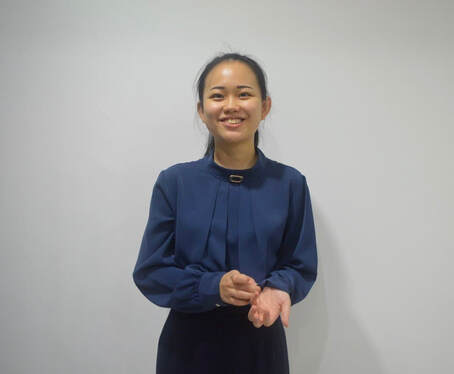
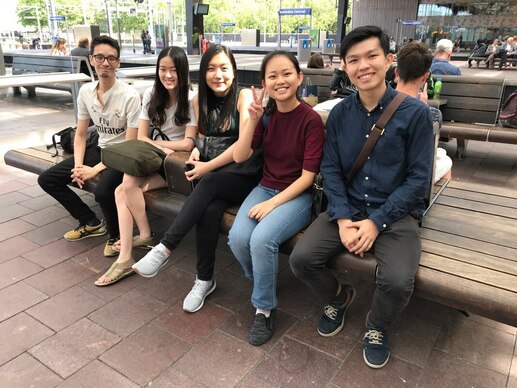
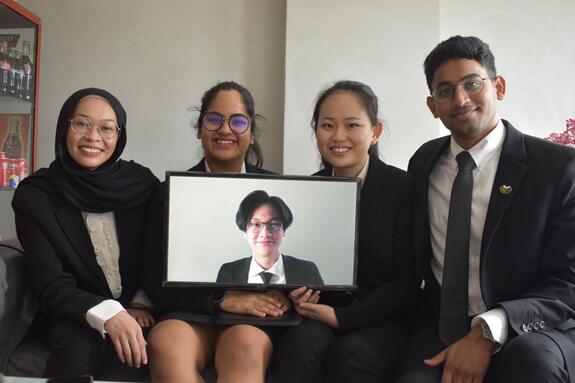
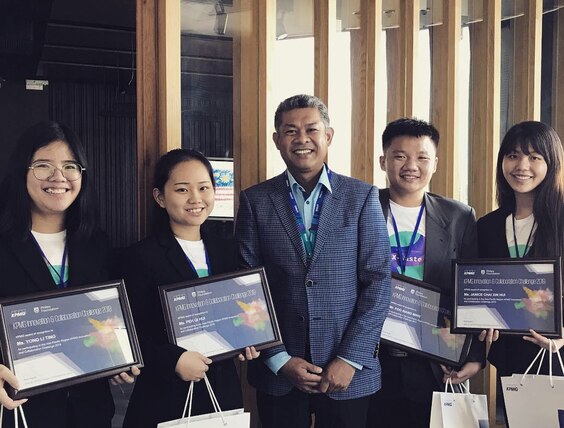
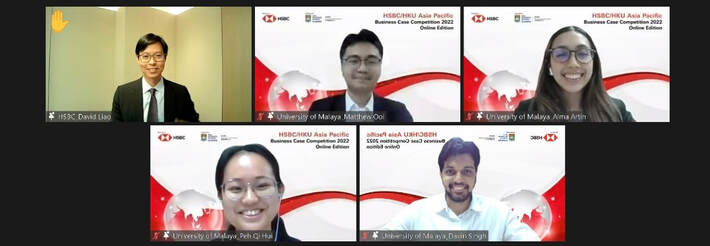
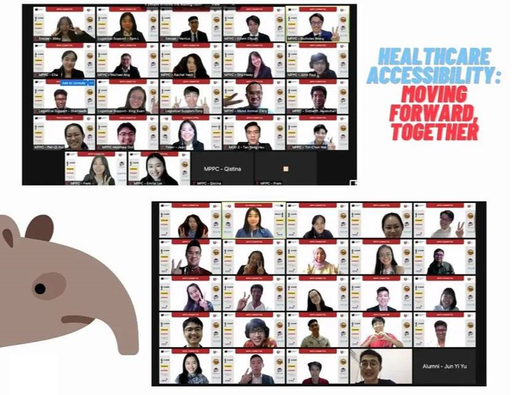
 RSS Feed
RSS Feed